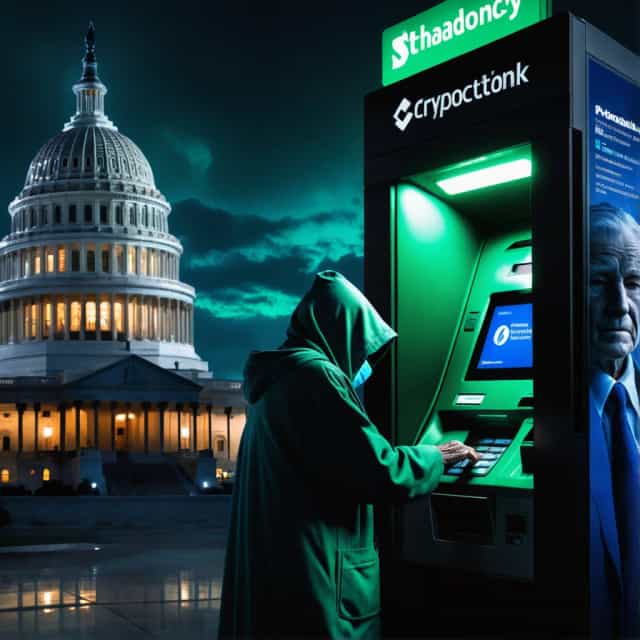
Image source: Block Media
Bitcoin's Core v30 Upgrade Ignites Community Division Over Network's Future
As the Bitcoin Core v30 upgrade approaches, the Bitcoin ecosystem finds itself locked in a heated debate that transcends mere technical adjustments. The impending update has exposed a fundamental divide over Bitcoin's identity and long-term trajectory, sparking philosophical and practical conflicts within the community. At the heart of the controversy lies "OP_RETURN," a seemingly small feature whose proposed changes could have far-reaching implications for the cryptocurrency.
With two opposing factions unable to reconcile their visions for Bitcoin—as sound money or a neutral data marketplace—the ongoing tension highlights Bitcoin’s decentralized decision-making process. This pivotal moment underscores a key question: What should Bitcoin’s ultimate purpose be?
The Controversy Over OP_RETURN: A Small Change with Big Consequences
The OP_RETURN feature allows users to embed data within Bitcoin transactions. Bitcoin Core v30 seeks to remove the current 80-byte capacity limit for OP_RETURN, a change developers argue reflects miners’ existing leniency in accepting larger data payloads. While this adjustment might seem technical or marginal to some, it cuts to the heart of Bitcoin’s evolving role.
Proponents of the upgrade herald the move as an essential step to modernize Bitcoin, enabling it to store simple messages or data without arbitrary limitations. Detractors, however, warn that such changes invite philosophical drift and practical risks, threatening the purity and original intent of the blockchain. To these critics, the proposed improvement risks compromising Bitcoin’s foundational principles.
Core Rift: Bitcoin as Sound Money vs. Bitcoin as a Neutral Data Marketplace
The division among Bitcoin stakeholders stems from contrasting ideologies about what Bitcoin should fundamentally represent. The first camp views Bitcoin primarily as "sound money," emphasizing its role as a secure, decentralized medium of exchange. Members of this faction oppose expanding OP_RETURN’s capabilities, labeling non-financial data storage as "blockchain spam." They fear that increasing data usage will waste valuable block space, undermine the network's efficiency, and inflate transaction costs.
In contrast, the second camp sees Bitcoin as more than just digital money. This group envisions its blockchain as a neutral data marketplace where transactions—whether financial or informational—can coexist. Advocates believe that anyone paying the required transaction fees deserves equal access to Bitcoin’s immutable ledger. For them, determining the value of stored information should be left to economic competition, not ideological gatekeeping.
Bitcoin Core developers emphasize that the v30 upgrade merely aligns with miners’ existing behaviors, as larger OP_RETURN data has already been tolerated within the network. However, resistance is mounting. Bitcoin Knots, a conservative client node opposing the change, is gaining traction among miners disillusioned with the Core client’s direction.
Broader Implications: Illegal Content, Censorship, and Corporate Bias
Tensions surrounding the OP_RETURN debate extend far beyond the technical nuances of data storage. Critics of removing the 80-byte limit emphasize that unrestrained data capabilities could open the door to illegal content being permanently stored on-chain. The immutable nature of blockchain, while a strength, raises concerns about the inclusion of malicious material, including illicit content like child exploitation.
Bitcoin developer Jimmy Song addressed these fears, explaining that Bitcoin nodes validate transactions without directly engaging with their content. “Transaction validation does not equal complicity in criminal activities,” Song stated, seeking to reassure those apprehensive about legal or moral liabilities.
Another contentious point stems from concerns over centralization and favoritism. Some community members suspect that the proposed changes would disproportionately benefit specific corporations or Layer-2 projects reliant on the network for their operations. Developers counter such accusations, defending the process as fully transparent and emphasizing that neutrality remains the guiding principle.
A Critical Moment in Defining Bitcoin’s Identity
With the Bitcoin Core v30 upgrade scheduled to deploy in October, the battle over the network’s philosophical and technical future shows no signs of abating. Node operators are experimenting with alternatives like Bitcoin Knots in greater numbers, signaling dissent within the ranks. This highlights the decentralized participation that defines Bitcoin, even as it complicates decision-making.
Despite the divisive environment, the chances of a disruptive blockchain split appear low. Instead, the standoff reflects deeper concerns over governance and autonomy in a maturing ecosystem. Developer Gloria Zhao underscored the stakes, cautioning, “If a small group of developers dictates the network's decisions, Bitcoin ceases to be decentralized and resilient.” Zhao reiterated the importance of empowering users, nodes, and miners alike to shape Bitcoin’s path.
As Bitcoin continues its journey, these debates remind users of the inherent tension between progress and principle in decentralized systems. The upcoming rollout of v30 is not just an upgrade—it is poised to serve as a defining moment in Bitcoin’s evolution. The decisions made in the coming months by the Bitcoin community will have lasting implications, marking the start of a new chapter in the cryptocurrency’s decentralized saga.










